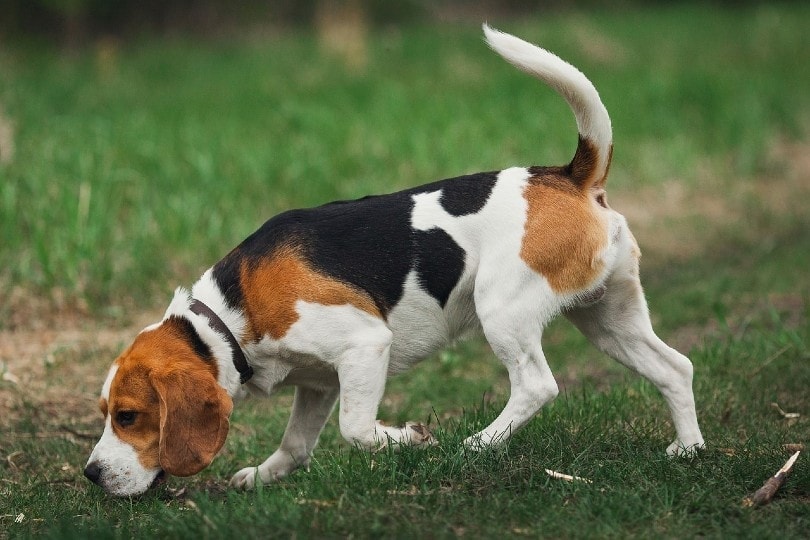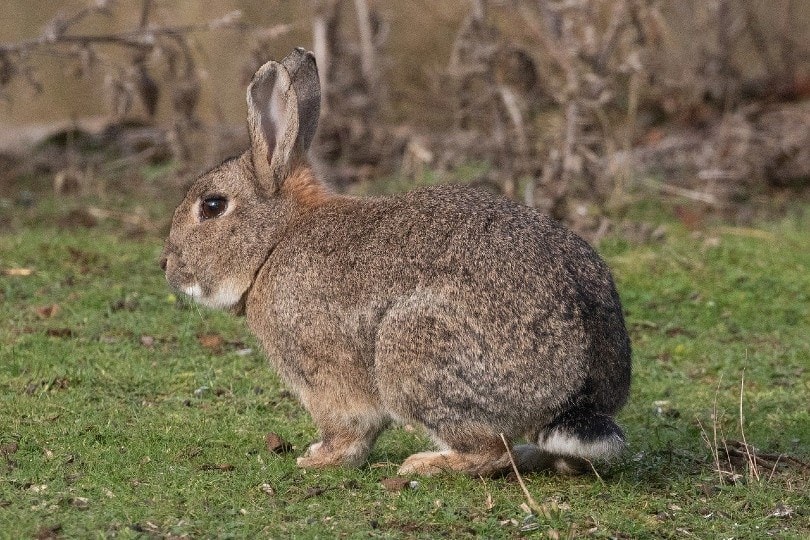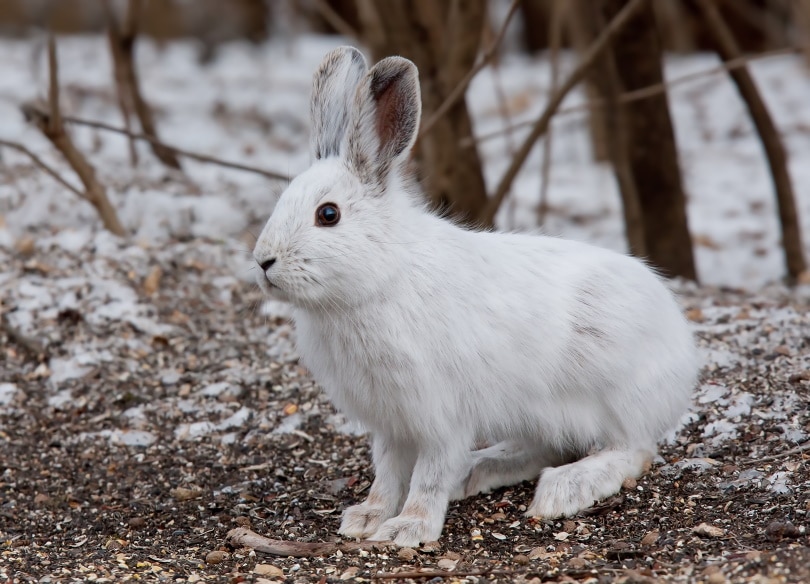
Beagles are one of the most iconic hunting dogs in the world. They’re smart, friendly, and incredibly skilled hunters. In fact, they are one of the oldest types of hunting dogs and have been used for small game hunting for centuries. Moreover, these adorable, happy-go-lucky pups can be easily trained to hunt different types of prey and are keen trackers.
In this article, we explore how and what Beagles hunt. We also give you an overview of their hunting practices and explain how they’re useful for hunting small game.
The 4 Types of Prey Beagles Hunt
1. Cottontail Rabbit

The cottontail rabbit has 2 inches of parabolic ears capable of detecting the slightest sounds, legs that are a third of the total length of its small round body, and a coat that remains brown all year round. This critter gets its name from its white tail, which is as fluffy as a cotton ball.
This crepuscular mammal is found in semi-open areas, such as grasslands and edges, and even in urban areas. Its range is concentrated in North America but extends into South America. There are several species, but the Eastern cottontail rabbit is the most common.
Cottontail rabbits are among the most prolific game animals in North America. In addition to reproducing at a high rate, they can invade crops or gardens because they feed on all grasses, leaves, and berries, hence people’s interest in hunting this small game.
The Beagle was developed primarily for rabbit and hare hunting, known as “beagling.” Hunters would take a pack of about 10 Beagles and follow the small game on foot. Of course, it’s also possible to track down and chase cottontails from their deep hiding places with a single Beagle.
2. Snowshoe Hare

Another favorite game for hunting with Beagles is the snowshoe hare. They are in the same family (Leporidae) as the eastern cottontail rabbit but are found farther north. These mammals are fond of dense coniferous forests, where they can easily hide to escape their many predators. They are taller and have longer ears than cottontails, but the main difference is that they grow an all-white coat when winter comes, which makes it easier for them to camouflage in the snowy landscape.
3. Fox

The red fox is the most common fox species in North America. This cunning mammal is easily recognizable due to its russet coat marked with white on the belly and the throat, its pointed muzzle, its erect ears, and its bushy tail. It is also one of the most common fox species when hunting foxes.
However, while a pack of Beagles can be trained to hunt these animals, foxhunting is more typically undertaken with a pack of scent hounds, such as foxhounds.
4. Game Birds

Beagles can also be used, although less frequently, for hunting small game birds, such as partridge, pheasant, quail, woodcock, or sometimes even duck. Therefore, it is possible to train these scent hounds to find and flush out birds. Indeed, their keen sense of smell is capable of detecting an almost odorless hare, so it can be judiciously put to good use in the hunt for small game birds.
But ultimately, while you can train this smart pup to hunt birds, it’s best to let a Beagle do what they were originally bred to do, which is hare and rabbit hunting.
What Makes the Beagle an Outstanding Hunting Dog?
Beagles have been used as hunting dogs for centuries, although their popularity began to wane in the 1800s. Indeed, those years marked the rise of foxhounds as highly skilled fox hunters. Fortunately, dedicated breeders managed to keep the Beagle breed alive and well, so today, this beloved pup is still one of the most popular breeds for small game hunting.
Characteristics that make Beagles such gifted and prized hunting dogs:
How Do Beagles Hunt?
Several specific characteristics make Beagles extremely competent hunting dogs.
Unity Is Strength
Generally, Beagles hunt in packs. When the Beagles are released and given the command to leave, small groups of the pack head together to search for prey.
The Nose Always Comes First

Beagles first use their exceptional sense of smell to detect potential prey, then they track that scent until they flush out the game. The Beagle pack then chases it into the open for the hunter.
Their Barks Are Informative
As soon as the pack of Beagles begins chasing the prey, they start barking in a specific way. These characteristic howls alert hunters that prey has been discovered. Hunters can then carefully aim and shoot at the fleeing animal.
Conclusion
Beagles are loyal and friendly pups that hunt intensely with all their heart. These qualities make these scent hounds wonderful hunting companions. They are primarily used for hunting small game, such as cottontail rabbits and snowshoe hares, but they can also be trained to hunt larger prey, such as foxes, deer, bobcats, and even wild boars. Of course, these endearing, energetic, and affectionate dogs also make great pets, as long as they can burn off their excess energy every day!
Featured Image Credit: olginaa84, Pixabay



